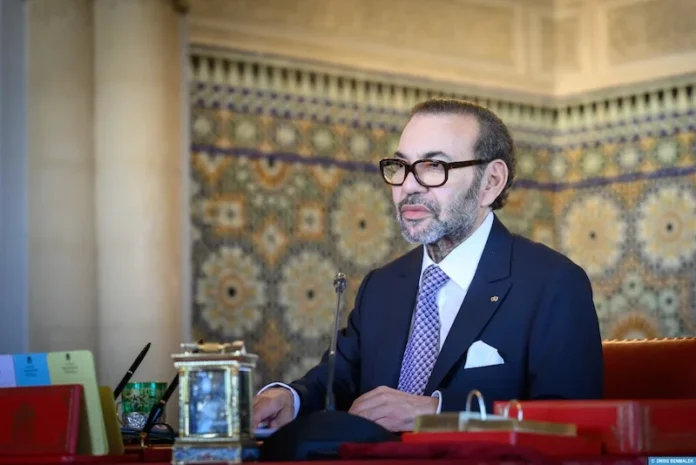In an era of mounting geopolitical pressures, climate urgency, and regional vulnerabilities, King Mohammed VI’s message to the “Africa for the Ocean” summit, co-chaired in Nice by President Emmanuel Macron and Princess Lalla Hasnaa, emerges as more than a diplomatic note. It reads as a strategic doctrine, a blueprint for a future where African oceans are no longer peripheral—but central.
Is the ocean Africa’s next sovereignty frontier?
The Moroccan monarch wastes no time in diagnosing the paradox: Africa, with its 30,000 km of coastline and vast marine wealth, remains marginalized in ocean governance. He reframes the sea not merely as an ecological concern, but as the nexus of food security, climate resilience, energy sovereignty, and regional cohesion.
🇲🇦🇺🇳 « Le Maroc, fort de ses 3 500 km de côtes et de 1,2 million de km² d’espaces maritimes, s’engage avec détermination à prendre sa part de l’œuvre collective. »
Extrait du message du Roi Mohammed VI, lu par la Princesse Lalla Hasnaa au sommet « L’Afrique pour l’Océan » à… pic.twitter.com/q2xxkrBLxh
— Le360 (@Le360fr) June 9, 2025
His call is bold: Africa must move from potential to ownership. The ocean is no longer a distant resource; it is an extension of national and continental identity.
Three axes, one African ocean doctrine
-
Structured Blue Growth: The king redefines the blue economy as a strategic necessity. Aquaculture, renewable marine energy, biotech, port industries, and coastal tourism must be interconnected within an investment-driven value chain. Morocco’s own megaprojects—Tanger Med, Dakhla Atlantique, Nador West Med—serve as proof-of-concept.
-
Enhanced South-South Maritime Cooperation: Ocean governance, says the king, must transcend national boundaries. Africa must coordinate efforts on biodiversity protection, maritime security, and equitable wealth sharing. The subtext is clear: Africa must speak as one in global marine negotiations.
-
An Inclusive Atlantic Vision: Through the Atlantic African States Initiative, Morocco proposes the Atlantic as a new space for collective security and economic integration. Notably, it includes Sahelian landlocked states, suggesting an inclusive geoeconomic framework that challenges old geographic and political divides.
The Atlantic: Africa’s next geopolitical core?
When King Mohammed VI references the Nigeria-Morocco gas pipeline, it’s more than infrastructure—it’s symbolism. It signifies Africa reorienting its energy future toward internal integration, not just external extraction.
As global focus drifts toward the Indo-Pacific, is Morocco spearheading an “African Atlantic moment”? Will traditional partners like France support this paradigm shift—or resist it?
Contextualizing with data and global reports
UNEP and AU reports highlight the vast losses Africa faces due to illegal fishing, maritime insecurity, and lack of integrated blue economy frameworks. King Mohammed VI’s message attempts to fill that vacuum—offering not just ideas, but direction.
His words are not merely a speech—they form a doctrine. The question is: will Africa follow? Can the ocean become the stage for a pragmatic, unified, post-colonial African strategy?




